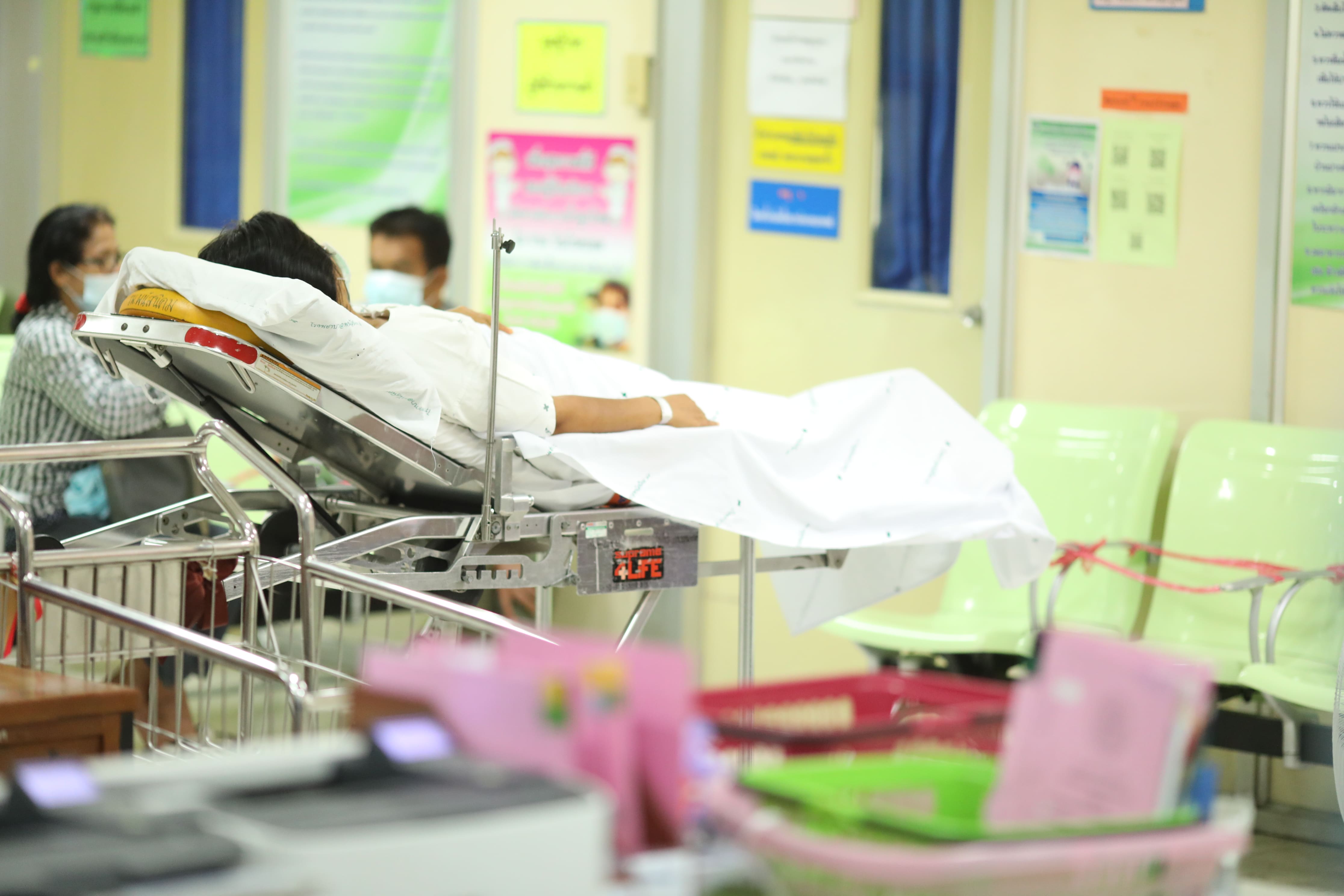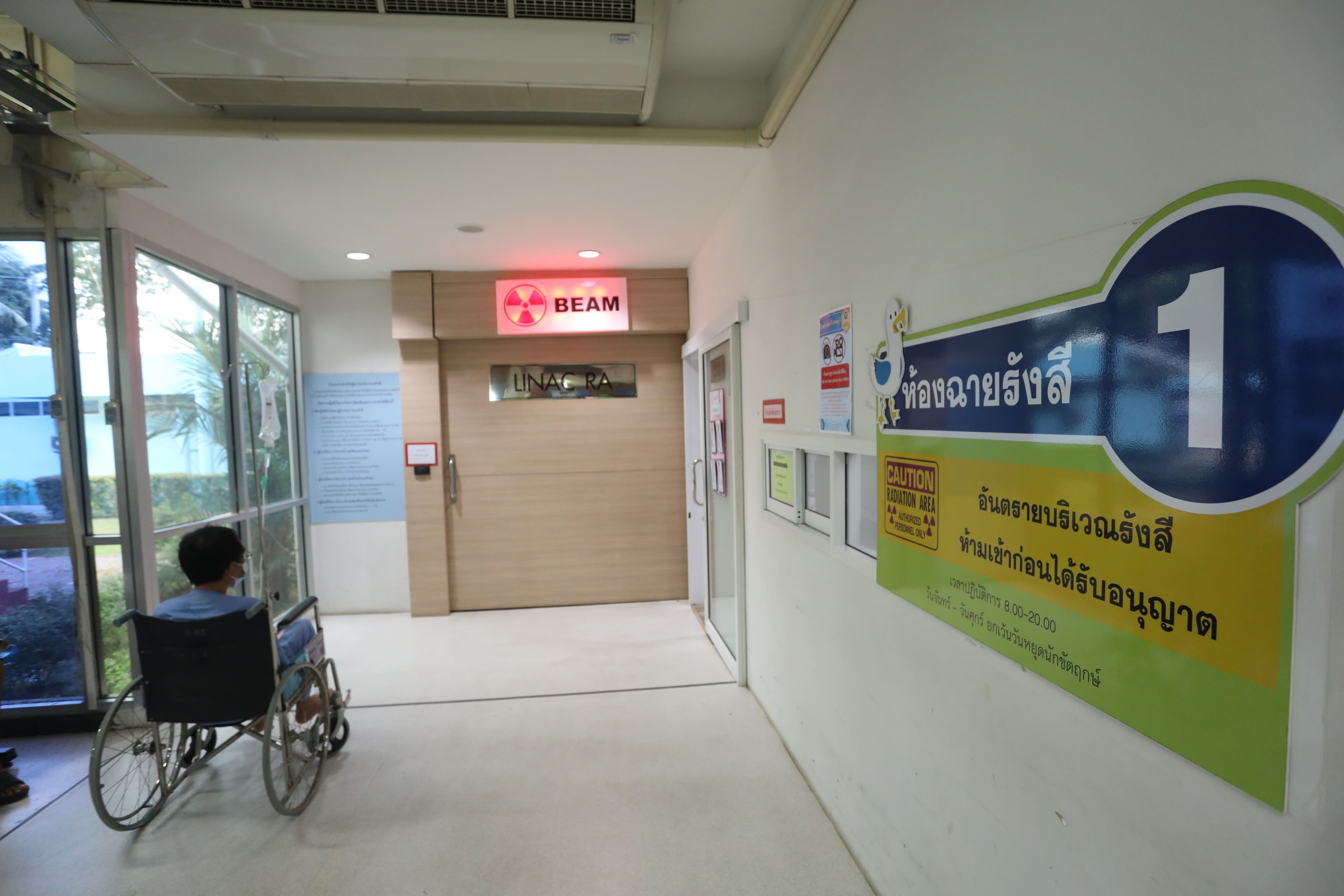
- Home
- DescriptionNews
Cancer Anywhere,' the NHSO’s initiative improving access to cancer treatment
.jpg)
Cancer Anywhere,' the NHSO’s initiative improving access to cancer treatment
Dr Jadej Thammatacharee
Secretary-General of National Health Security Office (NHSO)
"Cancer Anywhere" is one of the National Health Security Office (NHSO) 's initiatives that effectively ensure people's access to costly-disease treatment.
The initiative allows cancer patients under the Universal Coverage Scheme (UCS) to request treatment at any public hospital regardless of their registry hospitals.
Previously, they could only request the service from hospitals they signed up with the rule applied to nearly 47 million UCS beneficiaries.

The existing system was reported to delay the treatment for many cancer patients, especially those signed up with low-capacity hospitals.
The patients of these hospitals must be sent to more advancing ones. This inter-hospital transfer procedure could take time when it ties up with documentation work.
Patients may need to wait over a month (or more) to get specific treatments, including radiation therapy, because the destination hospitals are filled with early comers.
Seeing these patients painfully waiting in lines to get the treatment is unacceptable for us, who aspire to achieve 'health for all.'
On the other hand, the number of cancer patients has increased alarmingly and worryingly.
According to the National Cancer Institute's data, more than 139,000 new cancer cases were detected yearly between 2016 and 2018, or around 381 cases per day. More than 84,000 Thais died from cancer each year. (2o19, Strategic and Planning Division, Permanent Secretary Office, Ministry of Public Health’s data)
The most common types of cancer found in the Thai population are liver cancer and cholangiocarcinoma, breast cancer, lung cancer, colorectal cancer, and cervical cancer.
The situation prompted the NHSO and the Ministry of Public Health to push forward the Cancer Anywhere initiative to increase the survival chance for patients.
We started it two years ago with positive feedback from patients having quick access to treatment.
Health providers have also been cooperative. Some private hospitals, especially those specializing in cancer treatment, have contacted us and expressed their interest in joining the initiative.
The initiative's progress mainly relies on the financial mechanism, in which health providers can directly claim the expense incurred during cancer treatment from the NHSO.
The funding source comes from the NHSO's cancer fund, which we reserve over 10 billion baht a year to cover medical fees relating to cancer.
We also set up the funds for other high-cost diseases, including kidney failure and heart diseases, so health providers won't be reluctant to provide health services because of the fear of bankruptcy.
It also means patients won't hesitate to visit hospitals because of their inability to afford the medical fees.
However, there is still room for improvement in cancer treatment everywhere initiative and overall Thailand's cancer treatment.
Our team has recently discussed with experts to solve the high cost of drugs used during the treatment. We found 43 types of effective medications that we haven't included in the UCS benefits package.
If we want to introduce all of them into the scheme, we will need an additional 3.5 billion baht the amount that we can't cover at the moment.
When we reviewed the cost of each type of these drugs, we found that only a few of them are unaffordable equivalent to 80-90% of the estimated cost.
The NHSO has set up a committee of experts to select cost-effective drugs. Hopefully, it will be able to find alternative drugs for the expensive types by the end of this year, so the patients won't need to pay out of their pockets.

Another challenge is the shortage of equipment used in cancer treatment.
Not all public hospitals have the resources to purchase new equipment despite the patients' rising demands.
The procurement process can take time and largely depends on the government's yearly budget allocation.
We found that the shortage of medical linear accelerators is the primary reason behind patients' long wait to access treatment.
To solve this challenge, the Ministry of Public Health recently requested a budget from the central government for purchasing seven units of the device which will be distributed to hospitals across the country.
However, the solutions mentioned above and the cancer treatment everywhere initiative are the iceberg tips.
New cancer cases have climbed up every year, adding healthcare costs to the country.
Our government can't cover the indefinite increasing cost of treatment and new device procurements.
The best and most sustainable solution is to prevent people from having cancer in the first place. Therefore, the NHSO has relentlessly expanded the coverage of cancer screening tests.
The quicker we detect cancer, the lesser the chance people will develop severe symptoms that lead to healthcare burdens.
Increasing access to cancer screening tests is as important as ensuring people's access to treatment.
By having both in the UCS benefits package, keeping most people free of cancer is possible in the near future.
///////////////////////

